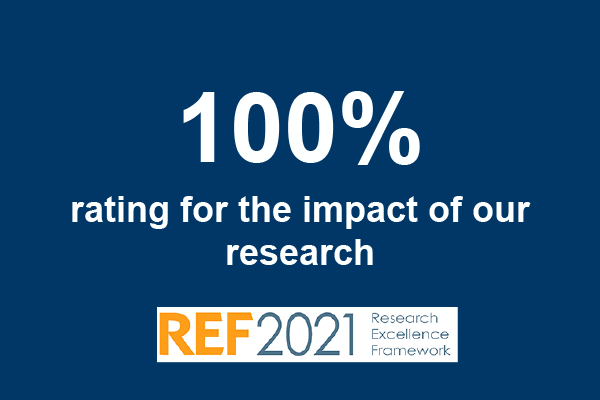The Research Excellence Framework (REF) 2021 has confirmed that Engineering research at Kent is of high quality, with 94% of our research outputs classified as either world leading (4*) and internationally excellent (3*). The impact of Engineering research has been rated at 100%, and our research environment also ranked at 100%.
One of the Impact Case Studies in our REF2021 submission is Improving Biometrics Best Practice, Policy, and Knowledge for End Users, Government, and Industry Internationally, a programme of work by School of Engineering researchers Richard Guest, Professor of Biometric Systems Engineering, Farzin Deravi, Emeritus Professor of Information Engineering, Sanaul Hoque, Senior Lecturer in Secure Systems Engineering, and Gareth Howells Professor of Secure Electronic Systems.
Automated biometric systems are increasingly used to authenticate human identity across a wide range of end-use scenarios; for example, in passport systems, bank account authentication and mobile device access. Kent has a longstanding and internationally recognised reputation for our broad contributions across the multidimensional fields of biometrics, specifically in biometric system design and industrial best-practice and policy deployment research.
This research into biometric verification technologies has contributed to the performance of biometrics, influenced multiple worldwide standards, and has contributed to the enhancement of device security.
Firstly, the research has enhanced algorithmic performance of biometric implementations, increasing rates of accuracy in recognition and protection against attacks, thereby ultimately enhancing the experience and convenience for users of systems such as mobile phones and legal signature systems.
Secondly, it has provided multiple worldwide standards since 2007 for the interchange of data, directly used by implementers of systems worldwide, with sustained usage growth over the past seven years.
Finally, the research has contributed to deployment theory and practice in novel biometric implementations, in particular on mobile devices, increasing the security of devices for the general public and service providers.
The research team has continued to provide direct policy advice to the UK Government. Furthermore, in 2014 their device authentication work led to the spin-out of a successful company, Metrarc Ltd, for the commercialisation of their technology.

